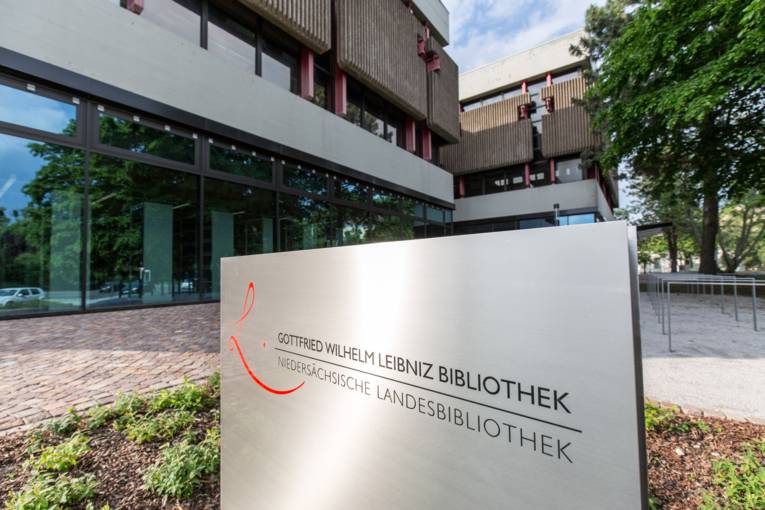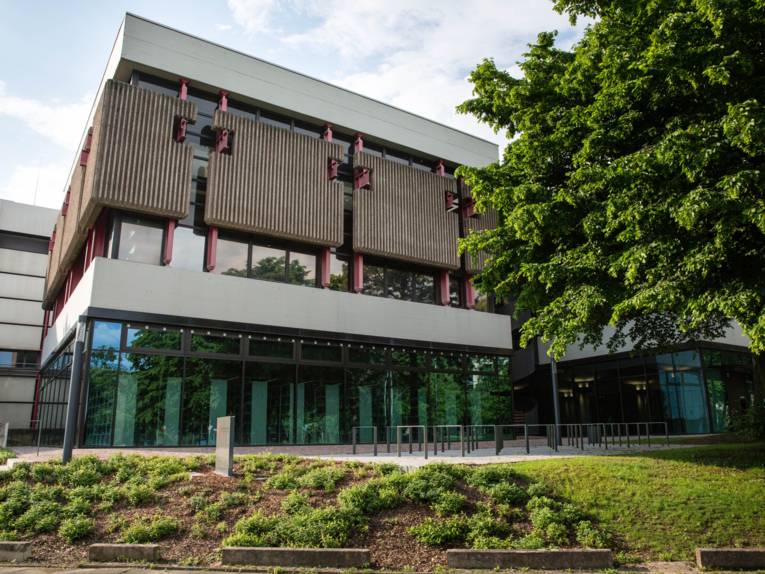The Gottfried Wilhelm Leibniz Library - National Library of Lower Saxony (GWLB) was founded as the court library of the Guelphic dukes in 1665 by Duke Johann Friedrich. As a scientific library with extensive databases, it nowadays is an important research centre both for the Lower Saxon and the European history of culture. The "Monseer Fragments" (one of the oldest occidental manuscripts from the time of Charlemagne), 375 books from the early period of letterpress printing and the property of the polymath Gottfried Wilhelm Leibniz (1646-1716) rank among the most precious possessions of the library.
"It is commonly known that a library with valuably printed books belongs to those things that can not be preserved by simply preserving, meaning it should not be presevered in a good condition when it is not mutiplied anymore", said Gottfried Wilhelm Leibniz, who was also the court's librarian in Hannover from 1676 until his death in 1716. The polymath himself contributed a lot to the desired "multiplication", his property "... was passed down in a rare unity since, shortly after his death, his belongings were confiscated by the English king and the electoral prince of Hannover, Georg I., to prevent political internals going out." That is what it says in the information about the property of Leibniz in the GWLB.
The department "Manuscripts and Ancient Printing" in the internal Leibniz scientific library adminstrates around 50,000 original documents with about 200,000 pages (containing also manuscripts and books from Leibniz' private library) and 15,000 letters from and to about 1,100 correspondents worldwide with which Leibniz communicated. "Hardly any other scholar was as communicative and cross-linked as Leibniz. The communication by letter was an important part in his life. His inheritance also reflects the internationality of his thinking regarding language; around 40 per cent is Latin, 30 per cent is French and about 15 per cent is German. Furthermore, there are texts in English, Italian and Dutch", says the GWLB.
The UNESCO stored Leibniz' exchange of letters as a "unique testimony of the European republic of scholars in the transit from Baroque to the Early Enlightenment" into the register of the "Memory of the World".
The main building of the Gottfried Wilhelm Leibniz Library - National Library of Lower Saxony is currently closed due to extensive renovations. A provisional loan service is operating in an annex. The official opening of the new building is scheduled for early December 2015. Once opened, it will be possible to look at original exhibits from the personal possession of Leibniz in air-conditioned areas on the first floor: a walkable glas gallery that is 13 metres long and five metres wide offers Leibniz' private work library. The display cabinet shows his working chair and the original four species calculating machine that he invented.
In the 2016 anniversary year of Leibniz, the whole first floor in the new building will be reserved for the distinguished philosopher and polymath: Under the motto "1716 - Leibniz Last Year Of Age", a special exhibition shows unique exhibits on 400 square metres from 21 June to 31 December 2016. Among other things, original manuscripts and a letter from 29 May 1716 with four postcard-sized pages about the "Perpetuum mobile of the Orffyreus" can be marveled at. Leibniz composed the letter just a couple of months before his death to privy councillor Christoph Enoch Buchta from Zeitz near Leipzig in French. The GWBL bought the letter 2013 at an auction in Berlin for 35,000 euro.
 Deutsch
Deutsch
 English
English
 中文
中文
 Danish
Danish
 Eesti
Eesti
 Español
Español
 Suomi
Suomi
 Français
Français
 Italiano
Italiano
 日本語
日本語
 한국
한국
 Nederlands
Nederlands
 Norge
Norge
 Polski
Polski
 Portugues
Portugues
 Русский
Русский
 Svenska
Svenska
 Türkçe
Türkçe
 العربية
العربية
 Romanesc
Romanesc
 български
български
 © hannover.de
© hannover.de  © LHH
© LHH